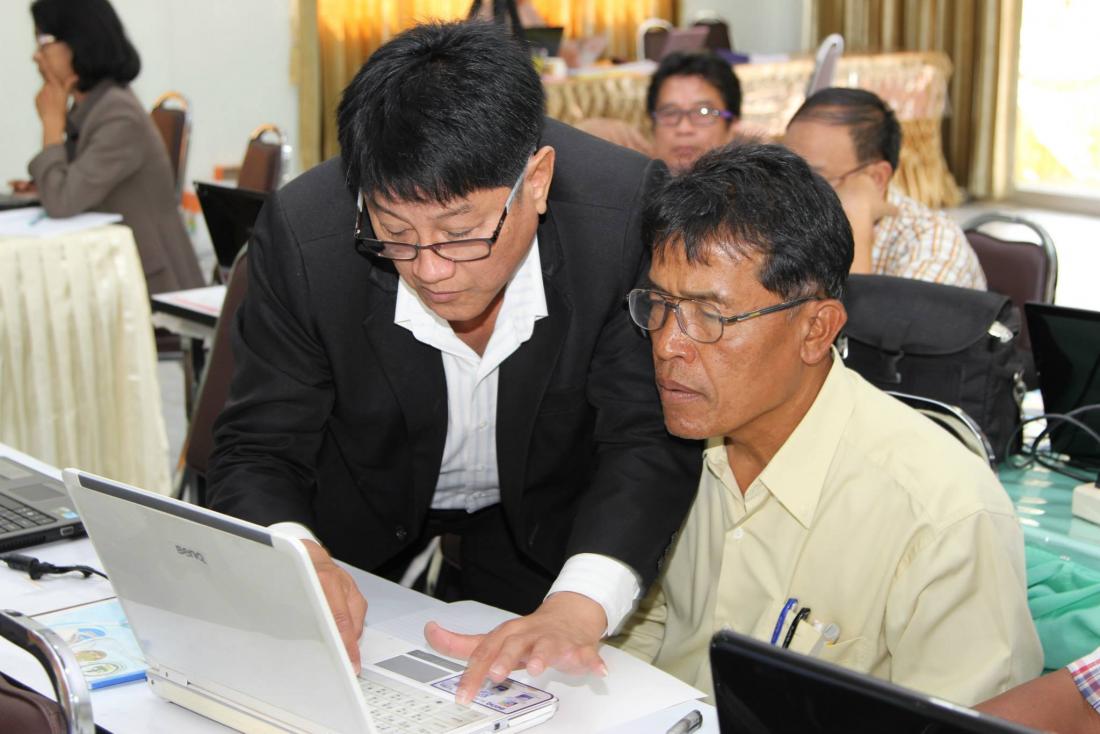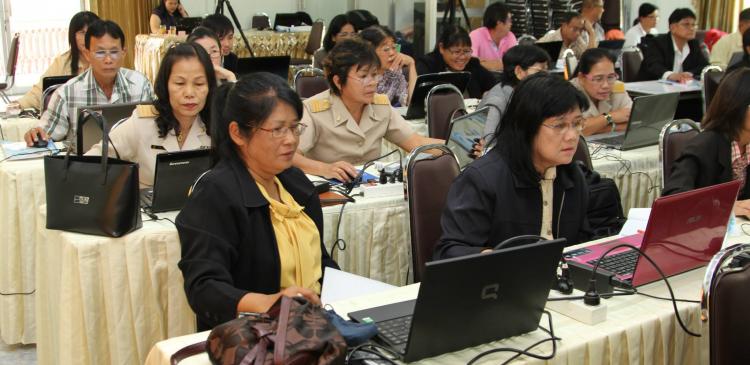In Thailand, population ageing is defined as the increasing proportion of elderly people - 60 years and above - in the total population. The rapid demographic change that has taken place in Thailand and the high speed of aging have raised concerns among policy makers regarding elderly people’s quality of life in the future. As of today, Thailand has become the most “aged” in Southeast Asia, next only to Singapore (UNPFA, 2008).
Population aging, as well as fast technological developments pose new challenges on individuals, communities and nations; these include a stronger digital divide with the growing gap between younger and older generations, ICT illiteracy, elderly people’s exclusion from using ICTs in their daily lives and lack of access to information.
Understanding the fundamental role that ICT play to improving the quality of life of elderly people, for example, helping them carrying out daily activities, monitoring their health, creating social networks, strengthening family ties, and increasing their participation in society, CCDKM has been supporting for decades projects to enhance elderly people’s access, knowledge and skills on the use of ICT.
This year, with the support of the Ministry of Information and Communication Technology (MICT), and in collaboration with the Asia-Pacific Telecentre Network and New Media4D, 76 elderly people from eight provinces in Thailand (Chiang Mai, Phetchaburi, Chonburi, Nakhon Pathom, Nakhon Phanom, Phichit, Lamphoon, Nong Khai) have been trained during a series of workshops on Computer literacy and ICT skills, Computer set-up and maintenance, Windows Data Management, Introduction to the Internet and Search Engine Optimization (SEO), Internet Browsers, Social Networking and Facebook, Internet trading and legal implications of internet usage and the Computer Crime Act B.E. 2550 (2007).
For most trainees it was their first time to hold a mouse in their hand and interact with a computer. Often, the main challenges that elderly people face when exposed to technology is their lack of confidence and fear of using ICT, no adequate support tailored to their needs, high costs of training, and the difficulty of understanding technical jargon.
During this training, however, participants understood the importance of ICT in facilitating social inclusion, improving the quality of their lives and enhancing independent living. “I learned how to use Google to search for news. I love to be informed on what is happening all over the country. My daughter lives in Bangkok and I must understand which events might affect her directly”, said Si, from Nakhon Pathom.
In addition, once trainees learned how to send emails and use Facebook, and realized the value of ICT in keeping them in touch with their relatives and friends, the motivation to remain digitally connected became strong. “Now that I discovered the Internet and learned how to use the Computer, there is no technology gap between my grandson and I”, said Tong from Pichit.
Sara Gabai
CCDKM, APTN




